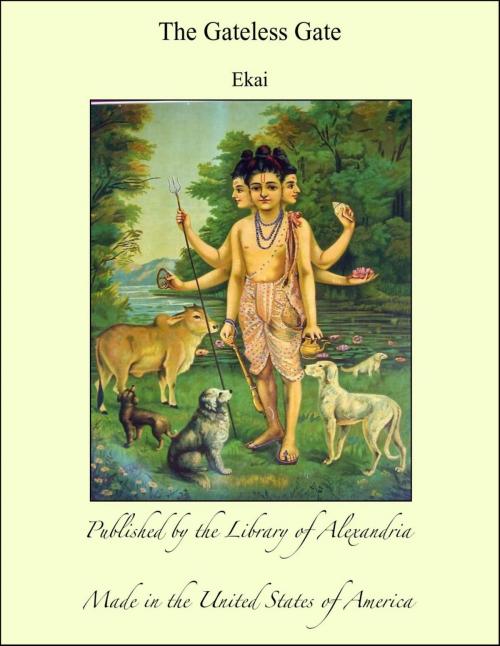| Author: | Ekai | ISBN: | 9781465577498 |
| Publisher: | Library of Alexandria | Publication: | March 8, 2015 |
| Imprint: | Language: | English |
| Author: | Ekai |
| ISBN: | 9781465577498 |
| Publisher: | Library of Alexandria |
| Publication: | March 8, 2015 |
| Imprint: | |
| Language: | English |
A monk asked Joshu, a Chinese Zen master: "Has a dog Buddha-nature or not?" Joshu answered: "Mu." [Mu is the negative symbol in Chinese, meaning "No thing" or "Nay."] Mumon's comment: To realize Zen one has to pass through the barrier of the patriarchs. Enlightenment always comes after the road of thinking is blocked. If you do not pass the barrier of the patriarchs or if your thinking road is not blocked, whatever you think, whatever you do, is like a tangling ghost. You may ask: What is a barrier of a patriarch? This one word, Mu, is it. This is the barrier of Zen. If you pass through it you will see Joshu face to face. Then you can work hand in hand with the whole line of patriarchs. Is this not a pleasant thing to do? If you want to pass this barrier, you must work through every bone in your body, through every pore of your skin, filled with this question: What is Mu? and carry it day and night. Do not believe it is the common negative symbol meaning nothing. It is not nothingness, the opposite of existence. If you really want to pass this barrier, you should feel like drinking a hot iron ball that you can neither swallow nor spit out.
A monk asked Joshu, a Chinese Zen master: "Has a dog Buddha-nature or not?" Joshu answered: "Mu." [Mu is the negative symbol in Chinese, meaning "No thing" or "Nay."] Mumon's comment: To realize Zen one has to pass through the barrier of the patriarchs. Enlightenment always comes after the road of thinking is blocked. If you do not pass the barrier of the patriarchs or if your thinking road is not blocked, whatever you think, whatever you do, is like a tangling ghost. You may ask: What is a barrier of a patriarch? This one word, Mu, is it. This is the barrier of Zen. If you pass through it you will see Joshu face to face. Then you can work hand in hand with the whole line of patriarchs. Is this not a pleasant thing to do? If you want to pass this barrier, you must work through every bone in your body, through every pore of your skin, filled with this question: What is Mu? and carry it day and night. Do not believe it is the common negative symbol meaning nothing. It is not nothingness, the opposite of existence. If you really want to pass this barrier, you should feel like drinking a hot iron ball that you can neither swallow nor spit out.















